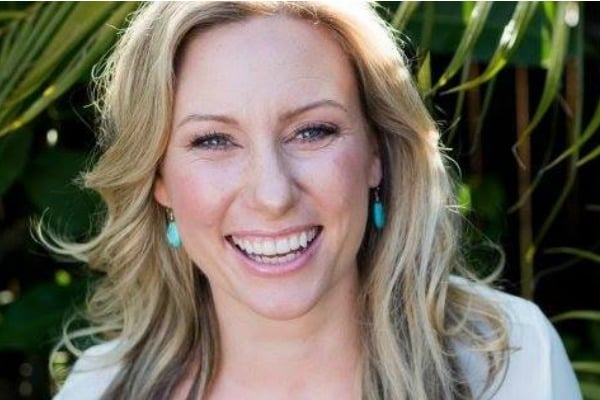
On July 15, 2017, just before midnight, Justine Ruszczyk Damond heard what she thought sounded like a woman being sexually assaulted in the alley behind her Minneapolis home.
Once police arrived, the Sydney-born woman, who had just moved to the US to be with her fiance Don Damond, approached the police car outside her home.
She was barefoot, wearing her pyjamas and clutching her gold mobile phone in her hand. But within minutes, she was dead.
Why Justice for Justine will keep fighting for justice. Post continues after audio…
The 40-year-old was fatally shot in the stomach by Mohamed Noor, a police officer who had been working with the Minneapolis Police Department for less than two years.
It’s believed Noor, who was working at the time alongside his partner, Office Matthew Harrity, had fired at Justine after being startled by a loud band on his squad car.
Yesterday, the 33-year-old police officer was taken into custody after he was found guilty of third degree murder and second degree manslaughter.
Katherine Hamburg, who lived just a block away from Justine when she was killed, created the Justice for Justine movement within her community. The group played a major part in calling for charges to be laid on Officer Noor.
Speaking to Mamamia’s daily news podcast The Quicky, Katherine explained that two years later, her community is still deeply affected by the death of Justine.
“What happened to Justine is something that could happen to anyone, anywhere, at anytime. Even if we don’t think about it or didn’t think about it before, you don’t expect anything like this to happen in our neighbourhood,” Katherine told The Quicky.
“As a result of [Justine’s death], those of us in this group, Justice for Justine, have come to realise how common this is for other people in different neighbourhoods,” she added.
Justine Damond’s story was shared on Australian Story. Post continues after video…
